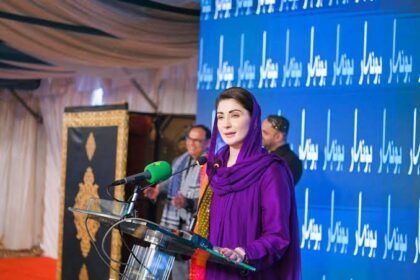The economic stability has always been a tough challenge for every government in Pakistan and successive administrations have come up with various strategies to tackle this crucial issue. The coalition government led by the Pakistan Muslim League-N is busy working out a strategy to address economic woes of the country. Media reports are circulating about the formulation of a five-year economic plan by the government, whose details will be shared by Prime Minister Muhammad Shehbaz Sharif through his upcoming address to the nation. However, it has been learnt that curbing inflation and alleviating poverty will be the main points of the plan among other parameters set as part of the five-year economic plan. Of late, the government is taking certain measures before the actual implementation of the five-year plan. Certain ministries within the power sector and their entities have been merged while ‘axe’ has fallen on some of the departments and corporations. In the name of rightsizing, the government is busy slashing the number of vacancies in government departments to reduce its expenditures. All these measures are being taken without taking the affected employees of respective organisations into confidence leading to widespread resentment among those employees. Before making any such decision, the government should have taken all pros and cons into account and announce a significant financial package for the affected employees. In its quest to save on expenditures, the government is also planning to impose a ban on the purchase of new vehicles while the number of ministries has been reduced compared to previous government of the Pakistan Tehreek-e-Insaf. Arguably, persistent struggle is required to materialize macroeconomic stability. So far, the economic situation is not so good exacerbated by a ‘new’ wave of terrorism. Inflation and high rate of poverty have gripped the nation.
The ‘brain drain’ is going on unchecked as the educated workforce has become disillusioned with the current economic system. A ‘record’ number of citizens have left the country in search of better future. Although Pakistan is a state with rich natural resources, yet its poor governance system has badly affected almost every sector. Various economic hurdles have plagued the state. Corruption, wastage of resources, nepotism and law and order situation have made the life of a common citizens miserable. The masses are the real stakeholders of economic revival but they are solely bearing the brunt of the ill-planning by successive governments. Nobody can negate the fact that our economy massively relies on outside factors like IMF loans, generous largesse from friendly states and remittances from overseas Pakistanis. These sources of income for the government are a matter of concern. However, every government struggles to reach a financial loan agreement with IMF and if a deal is settled, it is considered a big achievement. Successive governments have amassed so many loans that a big portion of state’s budget is reserved for servicing these loans. The government needs to focus on increasing foreign investment, boosting local manufacturing and revitalizing trade and industry. It has to take long term measures for economic revival. Austerity measures need to be taken not just in words but in action. Time and again, the Shehbaz Sharif government vows to reduce its expenditure and contain wastage of resources, yet practically no tangible action has been seen so for. Those leaders, who enjoy opulent lifestyles due to their foreign assets, will be mindful of bringing any good to their own country. Such rulers need to bring back a portion of their foreign wealth to the country by setting an example for others to follow.
In order to lead by example, they need to get rid of the curse of protocol. A fleet of vehicles following a single VIP is no less than a degradation of a common Pakistani, who sees this wasteful spending of public resources used just to maintain rulers’ pomp and show. This does not happen in developed democratic states and should not happen in Pakistan too. Another matter of concern is the practice of using luxury vehicles by bureaucrats, which must come to an end now. The high-ranking officers need to come forward and set an example by using only those vehicles, which are manufactured or assembled in Pakistan. The news about lavish spending on government offices and residences of officers often comes in limelight. This extravaganza is uncalled for and tantamount to making a mockery of the poor, who struggle to keep their body and soul together amid these challenging times. To achieve sustainable economic growth, the government needs to take measures for meeting tax/revenue collection targets, give boost to agriculture sector, create business-friendly environment for investors, focus on industrialization, make investment in digitization, privatization of loss-making institutions, overcoming devaluation of local currency, uplifting the promising sector of information technology among others. Our real asset is our youth. The government needs to create employment opportunities for talented youth. They can give soft loans to young professionals for setting up industries, which can ensure macroeconomic stability. All these measures need a strong political will. The government needs to practically demonstrate austerity before implementing in any other sector. Austerity on part of the government will ensure prosperous future. The digitization of offices and launching of various startups is a good idea, where the government can make investments for a quick economic revival.






